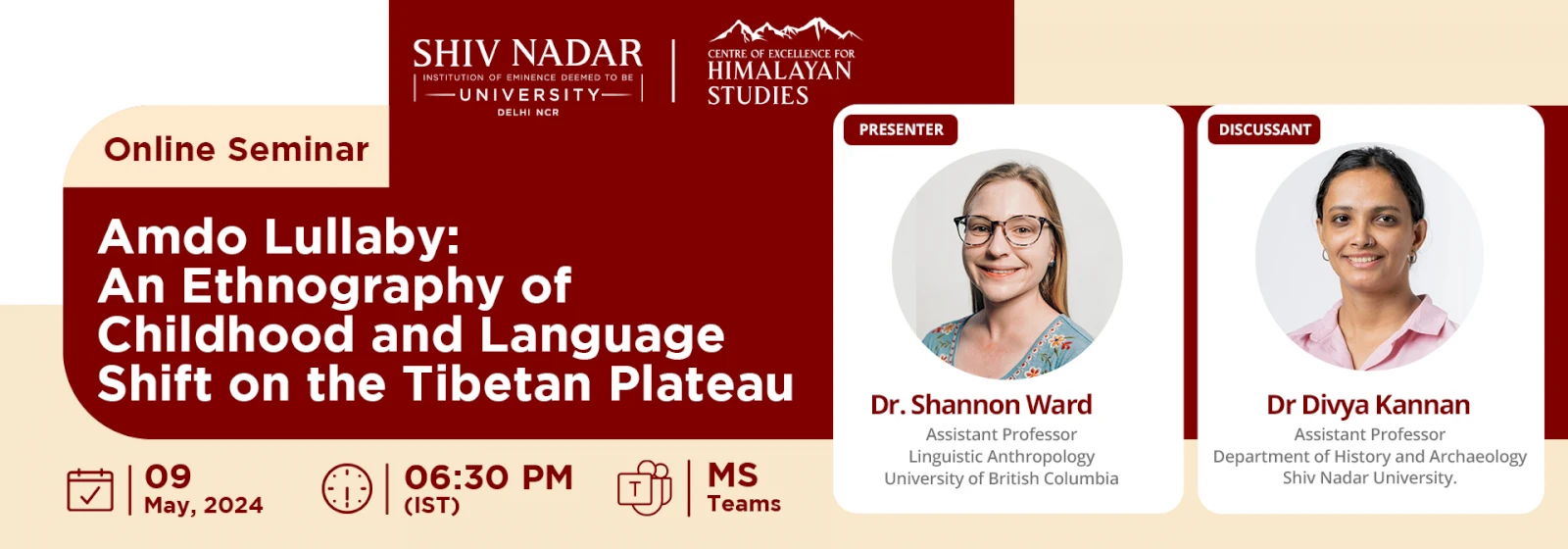CHS Webinar | Amdo Lullaby: An Ethnography of Childhood and Language Shift on the Tibetan Plateau | 9 May 2024| MS Teams
The Centre of Excellence for Himalayan Studies is organising an online talk by Dr Shannon Ward, on the topic Amdo Lullaby: An Ethnography of Childhood and Language Shift on the Tibetan Plateau on 09 May 2024 at 0630 PM IST. Dr Divya Kannan, Assistant Professor, Department of History and Archaeology, Shiv Nadar Institution of Eminence is the Discussant for this event.
Registration Link: Click Here
Abstract of the Talk: In the 21st century, economic development campaigns in China's far west have contributed to rural to urban migration, as well as the urbanization of previously rural places. Existing scholarship has documented the effects of urbanization on Tibetan communities, noting that, although sustained mobility is often constrained to urban centres on the Tibetan plateau, adults bring Tibetan cultural practices to these cities (Grant 2022, Washul 2018). Scholars have also noted that education policies play a significant role in driving urbanization, as Tibetan families increasingly hope to achieve socioeconomic mobility through their children's participation in mainstream public education (Gyal 2019, Ying 2023). We know less about how children, themselves, experience these socioeconomic changes.
Based on 15 months of ethnographic field research, Amdo Lullaby examines young children's everyday talk to illuminate the consequences of economic development in Amdo/Qinghai for children's cultural worlds. By comparing the language practices of rural and urban children from one extended family, this book demonstrates that rural children maintain multilingualism in Mandarin and their mother tongue, a variety of Amdo Tibetan known locally as "Farmer Talk," as they grow up. Urban children, however, mostly shift to Mandarin after beginning preschool. Although these pressures for assimilation are realized in language shift, both rural and urban children continue to organize their language practices through Tibetan cultural logics that link language variation to place and kinship. Amdo Lullaby therefore argues that Amdo Tibetan children are not passively abandoning their mother tongues, but are reformatting the cultural associations that have traditionally supported linguistic diversity in Amdo/Qinghai.

Share this: